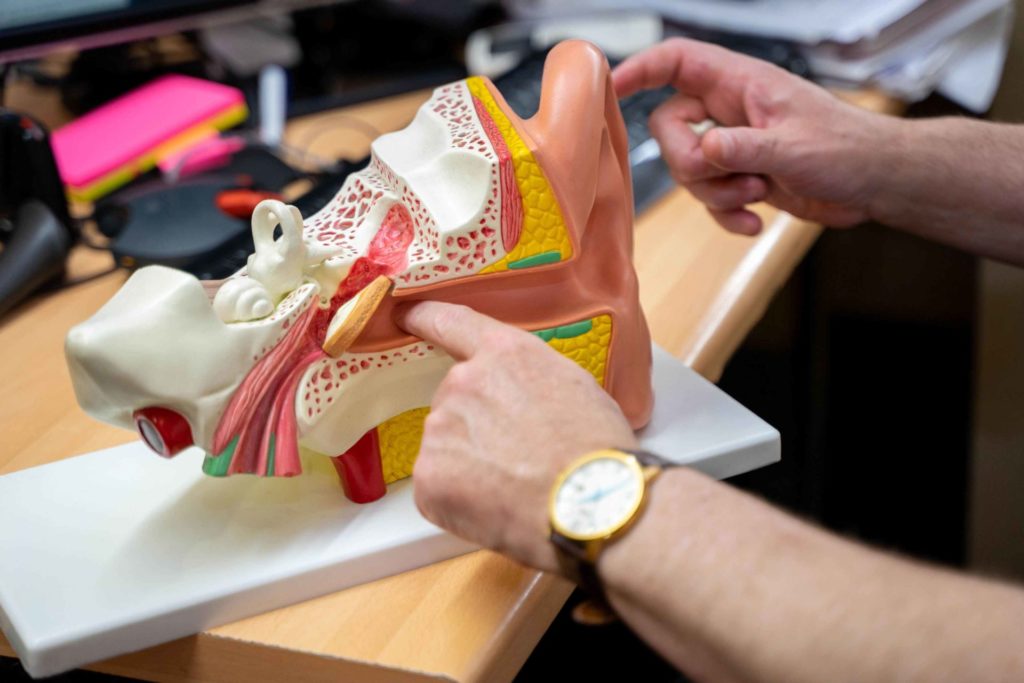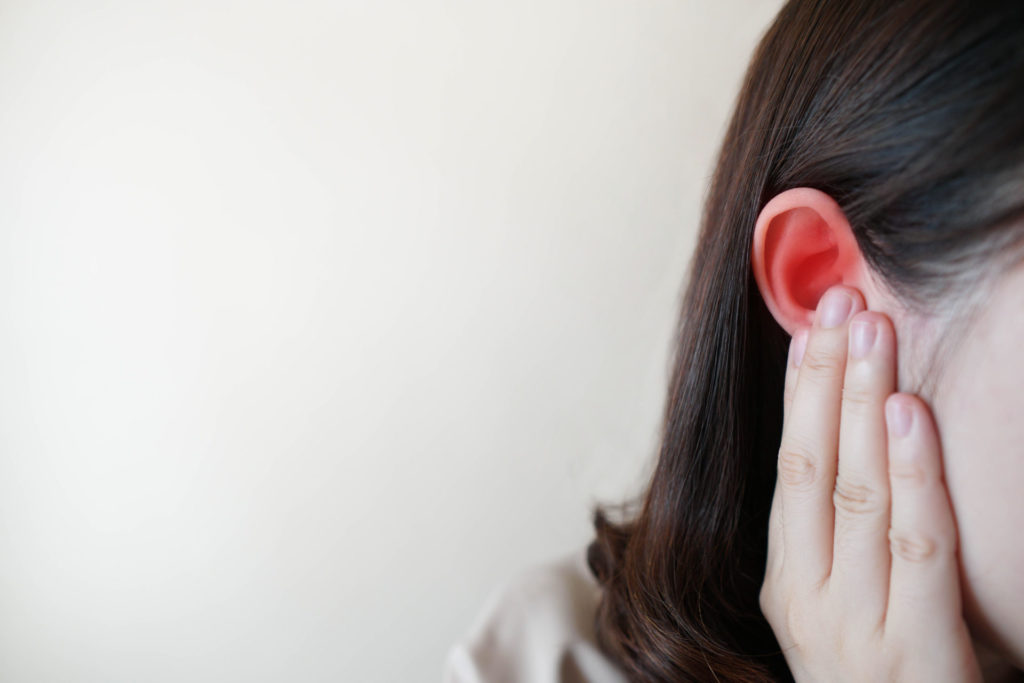Do I need a hearing test? Signs to look out for
As we get older our hearing will naturally degrade, these changes can be significant or go unnoticed. Therefore, it can be hard to find inspiration to go for a hearing test if you haven’t noticed any considerable changes. Often, it will be the people around you who notice changes in your behaviour and hearing before you do, so it is important that you take heed of any feedback that is given to you and reflect on your hearing ability.
In this blog, we will be exploring different symptoms which could be indications of hearing loss. Whether that be due to an ear wax blockage or natural degradation in hearing. With this information, you can then understand whether you require a hearing test appointment to find a solution best suited to you.
Why does hearing loss occur in our ears?
Our cochleas are covered in minuscule hairs called stereocilia, the cochlea is the small snail-shaped organ inside our ears. This organ is what allows us to hear sounds, the fluid inside moves in response to vibrations which travel inside the ear. The stereocilia are what translate the vibrations from our cochlea into nerve impulses to the brain.
These hairs can only withstand a certain level of sound before becoming damaged or dying. The louder the sound the more work is needed to translate the vibration to the brain, this is what causes damage and in turn, hearing loss. As we grow older we hear various sounds and go through a variety of different environments which is why hearing loss is a natural occurrence as we age. However, if you don’t look after your hearing when you are younger, and expose yourself to loud noises regularly, hearing loss can then occur much sooner than expected.
If you work in loud environments or enjoy going to festivals and concerts it is advised to take extra precautions and care for your hearing. A solution would be custom earplugs. Much like regular earplugs, they reduce the sound entering your ear to an extent that is safe for your stereocilia. However, as they are a custom fit, they are more comfortable to wear and reduce the risk of hearing loss even further. For more information, you can also read our guide on our top 3 tips for protecting your hearing.
In other circumstances, you may be suffering from hearing loss due to a blockage of ear wax. To prevent bacteria or other foreign bodies from entering our ears we naturally produce ear wax. Our bodies’ natural oils and dead skin also lead to ear wax being produced. After a period of time this ear wax should exit our ears, yet, sometimes due to hair or excessive amounts of ear wax being produced, blockages can occur. Hearing tests can help differentiate between a natural occurrence of hearing loss or a blockage of ear wax.

Symptoms & solutions of natural hearing loss
Natural hearing loss is something we will all eventually experience at an older age unless you have been exposed to loud noises consistently from a young age. If this happens you may find your hearing beginning to degrade at a younger age than expected. You may notice some small changes in your hearing over time and not believe them to be an issue, however, some changes are worth getting a hearing test and ensuring your ears are still healthy. Here are some of the most common symptoms you may find for natural hearing loss;
- Misunderstanding others when they speak, speech sounding muffled or quiet. This can be worse in noisy environments. And can lead to frustration when asking others to repeat themselves often
- Turning up your devices such as speakers, phones, and TV at a higher volume than necessary just to hear comfortably
If you find yourself suffering from any of these symptoms we highly recommend that you book a hearing test as you may be suffering from hearing loss. The best solution for natural hearing loss is currently hearing aids. Depending on the severity of your hearing loss there is a range of hearing aids which could be best suited for your ears. Moreover, if you believe wearing hearing aids would make you feel uncomfortable there are a variety of styles to choose from which can make them invisible to others. If you have any other questions about hearing aids you can read our guide on frequently asked questions about hearing aids.
Symptoms & solutions of ear wax blockage
As previously explained, the reason for your hearing loss could be due to an ear wax blockage. Not only is it important to get an ear wax blockage removed for the benefit of your hearing but after a period of time, the built-up wax can potentially lead to ear infections as well. Therefore, if you find yourself suffering from any of the symptoms below we recommend you book a hearing test as soon as possible to check the health of your ears and remove the possibility of infection occurring;
- Muffled hearing – this could be hard to differentiate from natural hearing loss yet, you will often be suffering from some of the other symptoms as well. This is why a hearing test is needed to check what the problem is
- Earache – the blockage may be causing a strain within your ear as your inner hairs will be working harder to translate the quieter vibrations entering your ear.
- Vertigo – Since the vibrations entering your ear are translated to the brain the sound and orientation of your ear are taken into consideration when these signals are passed. If the signals are slightly incorrect when being passed onto the brain this can be confusing and cause nausea feeling much like motion sickness.
If you do find yourself suffering from a blockage of ear wax we recommend you undergo ear wax removal treatment. This treatment is completely painless and can be completed in under 20 minutes. After the treatment, you should find your hearing restored with your ears feeling relieved from any pressure as well. If you are still unsure as to whether you need ear wax removal treatment you can read our guide on signs you may need ear wax removal.

Book a hearing test today
We hope this blog has been informative and helpful in deciding whether you need a hearing test or not. However, if you have any questions you can contact us through email or calling and we will be happy to help you with your decision. Email now by clicking the link or call us at 0800 781 0422. If you would like to book an appointment click the link here.
Get in touch
If you’re concerned you may have a problem with your hearing, or you’d like to arrange a hearing test for a family member, we’re here to help.
Nathan Gluck Hearing Care,
20 Wentworth Road,
Golders Green, London,
NW11 0RP, UK